Spotlight
A selection of stories from across the Federation
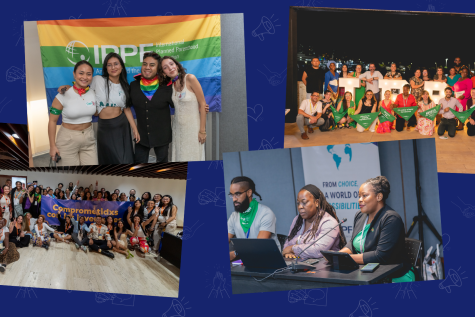
SRHR after Cartagena: the Pending Agenda for Population and Development
Our key highlights of the Conference on Population and Development 2024
Most Popular This Week
Brazil
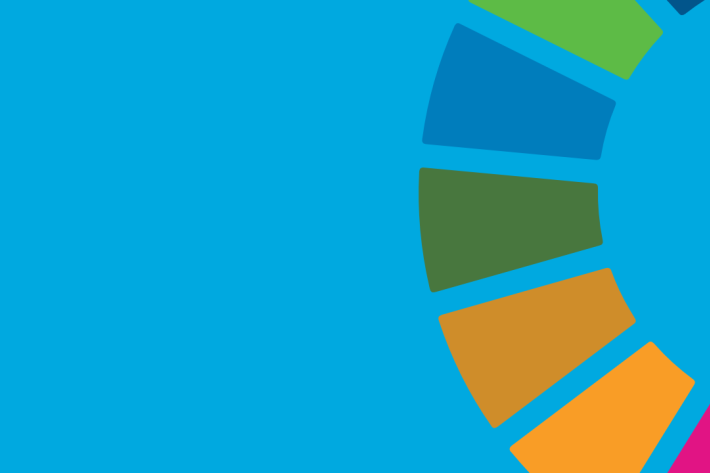
The High-Level Political Forum: Let’s rewrite the rules
Haz click aquí para leer esta historia en español. The High-Level Political Foru
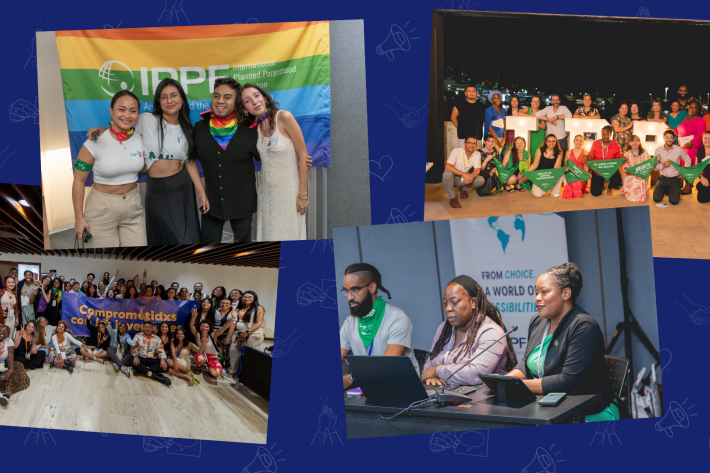
SRHR after Cartagena: the Pending Agenda for Population and Development
Haz click aquí para leer esta historia en espa
Americas & the Caribbean
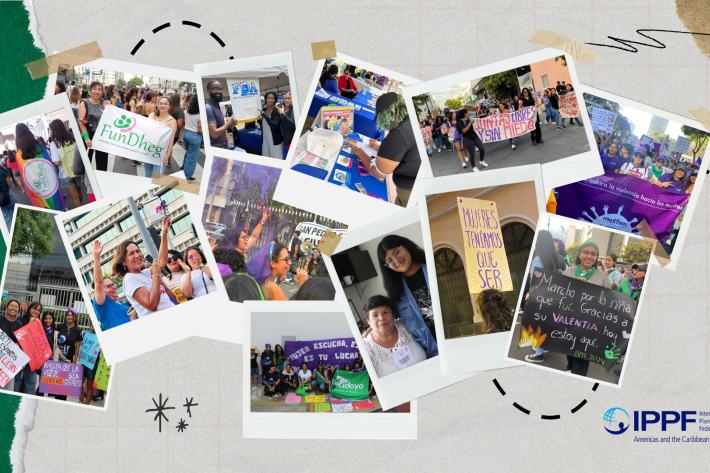
Trinidad and Tobago, Colombia, St Lucia

Revolutionizing CSE: Latin American and Caribbean Youth Leading the Charge!
Revolutionizing CSE: Latin American and Caribbean Youth Leading the Charge!
Jamaica
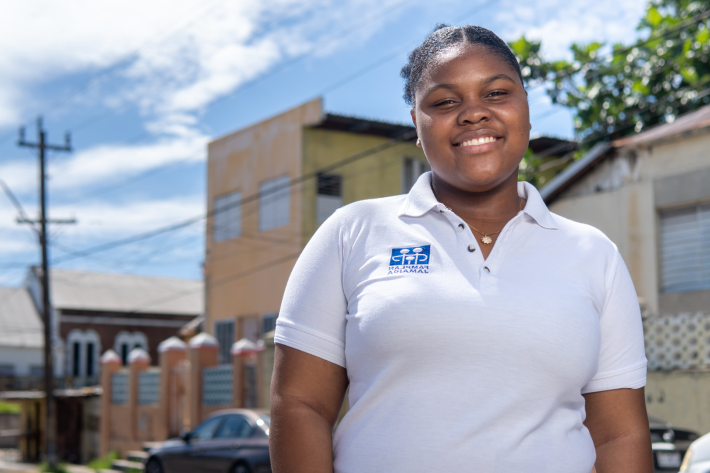
I’ve seen people become more aware and more careful.
Candice Taylor, 18, joined the Jamaica Family Planning Association (JFPA) Youth Advocacy Movement (YAM) at age 15 after youth officer Fiona Francis introduced her to the group.
Filter our stories by:


| 30 September 2020
Reaching young people with disabilities in Trinidad and Tobago
Trigger warning: this story contains details about sexual assualt Monique* shared with IPPF her experience as a young, disabled woman with a child: "I was constantly raped by my father. I got pregnant. People thought I shouldn’t and couldn’t raise my son, but now he’s going to one of the best public schools." "I’m a mother. I’m a woman. People seem to think there’s something strange about me wanting to have sex or enjoying it. People with disabilities are made invisible and silent. They need encouragement in gaining confidence and becoming as self sufficient as possible. This programme has given me confidence. I’ll make sure that what I learned I’ll teach to others." In Trinidad and Tobago, many young people face challenges when it comes to accessing sexual and reproductive health services, but young people with disabilities face additional barriers due to stigmatization and social prejudices. Young people with disabilities are often isolated and lack knowledge about sexual and reproductive health and rights. As a result, they can be vulnerable to sexual abuse. Rates of unplanned pregnancies and sexually transmitted infections are high among young people with disabilities. In Port of Spain and San Fernando, the Family Planning Association of Trinidad and Tobago (FPATT) set up 'Going Beyond the Walls' – a project to provide HIV testing and counselling to young people with disabilities. It offered a full range of other sexual and reproductive health services, from pap smears through to general counselling. They also organized seminars to sensitize young people to the issues faced by those with disabilities. Over 400 students attended educational sessions about people with disabilities and their sexual rights. Participants said their attitudes towards people with disabilities, and often towards themselves, had shifted significantly as a result of the project. They suggested that what they had learned should be communicated to everyone through campaigns, sensitization exercises and services. *Not her real name/image

| 14 June 2025
Reaching young people with disabilities in Trinidad and Tobago
Trigger warning: this story contains details about sexual assualt Monique* shared with IPPF her experience as a young, disabled woman with a child: "I was constantly raped by my father. I got pregnant. People thought I shouldn’t and couldn’t raise my son, but now he’s going to one of the best public schools." "I’m a mother. I’m a woman. People seem to think there’s something strange about me wanting to have sex or enjoying it. People with disabilities are made invisible and silent. They need encouragement in gaining confidence and becoming as self sufficient as possible. This programme has given me confidence. I’ll make sure that what I learned I’ll teach to others." In Trinidad and Tobago, many young people face challenges when it comes to accessing sexual and reproductive health services, but young people with disabilities face additional barriers due to stigmatization and social prejudices. Young people with disabilities are often isolated and lack knowledge about sexual and reproductive health and rights. As a result, they can be vulnerable to sexual abuse. Rates of unplanned pregnancies and sexually transmitted infections are high among young people with disabilities. In Port of Spain and San Fernando, the Family Planning Association of Trinidad and Tobago (FPATT) set up 'Going Beyond the Walls' – a project to provide HIV testing and counselling to young people with disabilities. It offered a full range of other sexual and reproductive health services, from pap smears through to general counselling. They also organized seminars to sensitize young people to the issues faced by those with disabilities. Over 400 students attended educational sessions about people with disabilities and their sexual rights. Participants said their attitudes towards people with disabilities, and often towards themselves, had shifted significantly as a result of the project. They suggested that what they had learned should be communicated to everyone through campaigns, sensitization exercises and services. *Not her real name/image

| 30 September 2020
Reaching young people with disabilities in Trinidad and Tobago
Trigger warning: this story contains details about sexual assualt Monique* shared with IPPF her experience as a young, disabled woman with a child: "I was constantly raped by my father. I got pregnant. People thought I shouldn’t and couldn’t raise my son, but now he’s going to one of the best public schools." "I’m a mother. I’m a woman. People seem to think there’s something strange about me wanting to have sex or enjoying it. People with disabilities are made invisible and silent. They need encouragement in gaining confidence and becoming as self sufficient as possible. This programme has given me confidence. I’ll make sure that what I learned I’ll teach to others." In Trinidad and Tobago, many young people face challenges when it comes to accessing sexual and reproductive health services, but young people with disabilities face additional barriers due to stigmatization and social prejudices. Young people with disabilities are often isolated and lack knowledge about sexual and reproductive health and rights. As a result, they can be vulnerable to sexual abuse. Rates of unplanned pregnancies and sexually transmitted infections are high among young people with disabilities. In Port of Spain and San Fernando, the Family Planning Association of Trinidad and Tobago (FPATT) set up 'Going Beyond the Walls' – a project to provide HIV testing and counselling to young people with disabilities. It offered a full range of other sexual and reproductive health services, from pap smears through to general counselling. They also organized seminars to sensitize young people to the issues faced by those with disabilities. Over 400 students attended educational sessions about people with disabilities and their sexual rights. Participants said their attitudes towards people with disabilities, and often towards themselves, had shifted significantly as a result of the project. They suggested that what they had learned should be communicated to everyone through campaigns, sensitization exercises and services. *Not her real name/image

| 14 June 2025
Reaching young people with disabilities in Trinidad and Tobago
Trigger warning: this story contains details about sexual assualt Monique* shared with IPPF her experience as a young, disabled woman with a child: "I was constantly raped by my father. I got pregnant. People thought I shouldn’t and couldn’t raise my son, but now he’s going to one of the best public schools." "I’m a mother. I’m a woman. People seem to think there’s something strange about me wanting to have sex or enjoying it. People with disabilities are made invisible and silent. They need encouragement in gaining confidence and becoming as self sufficient as possible. This programme has given me confidence. I’ll make sure that what I learned I’ll teach to others." In Trinidad and Tobago, many young people face challenges when it comes to accessing sexual and reproductive health services, but young people with disabilities face additional barriers due to stigmatization and social prejudices. Young people with disabilities are often isolated and lack knowledge about sexual and reproductive health and rights. As a result, they can be vulnerable to sexual abuse. Rates of unplanned pregnancies and sexually transmitted infections are high among young people with disabilities. In Port of Spain and San Fernando, the Family Planning Association of Trinidad and Tobago (FPATT) set up 'Going Beyond the Walls' – a project to provide HIV testing and counselling to young people with disabilities. It offered a full range of other sexual and reproductive health services, from pap smears through to general counselling. They also organized seminars to sensitize young people to the issues faced by those with disabilities. Over 400 students attended educational sessions about people with disabilities and their sexual rights. Participants said their attitudes towards people with disabilities, and often towards themselves, had shifted significantly as a result of the project. They suggested that what they had learned should be communicated to everyone through campaigns, sensitization exercises and services. *Not her real name/image









